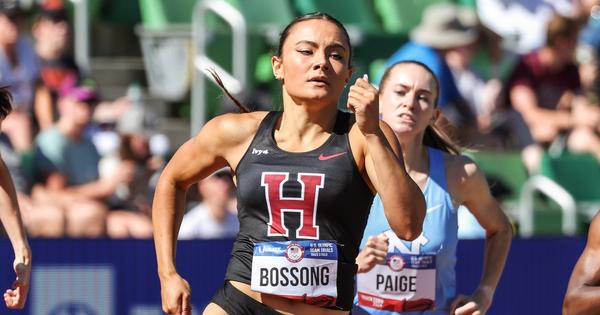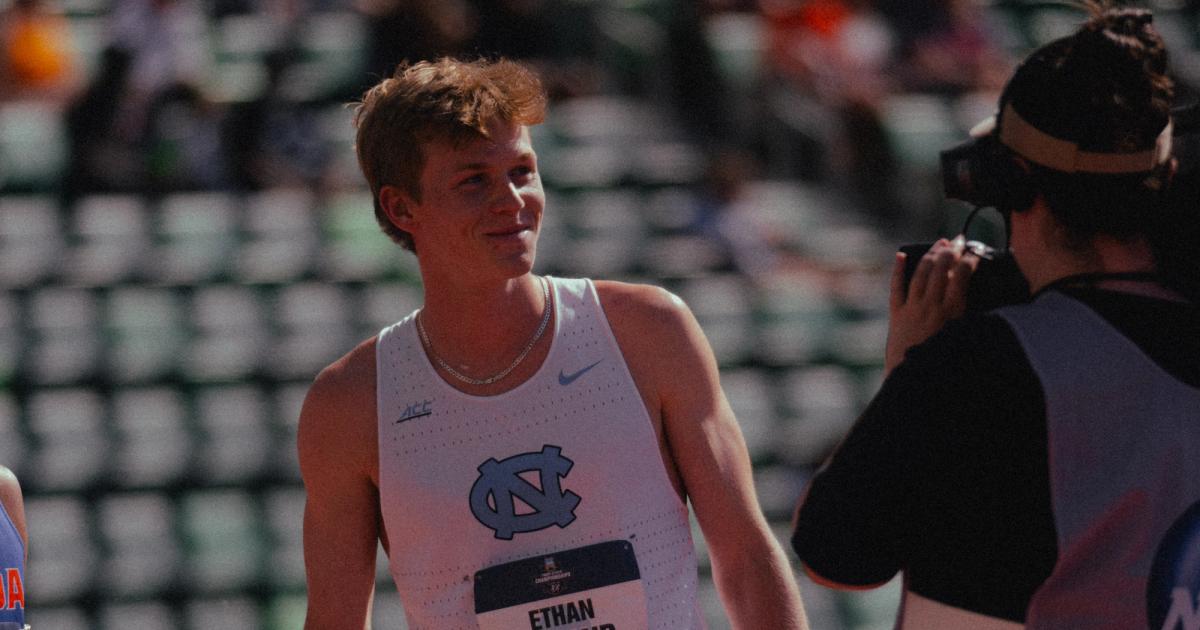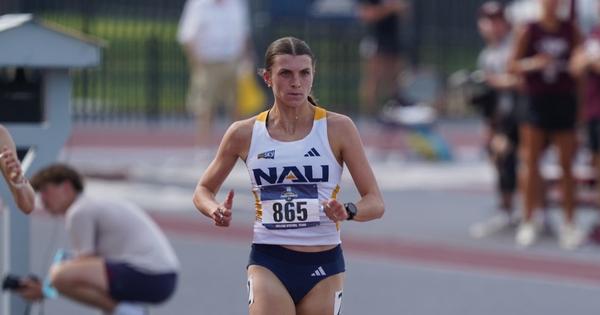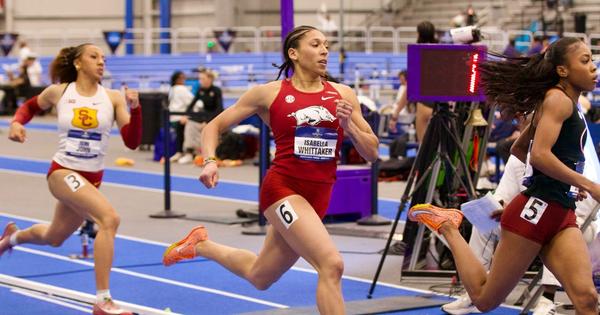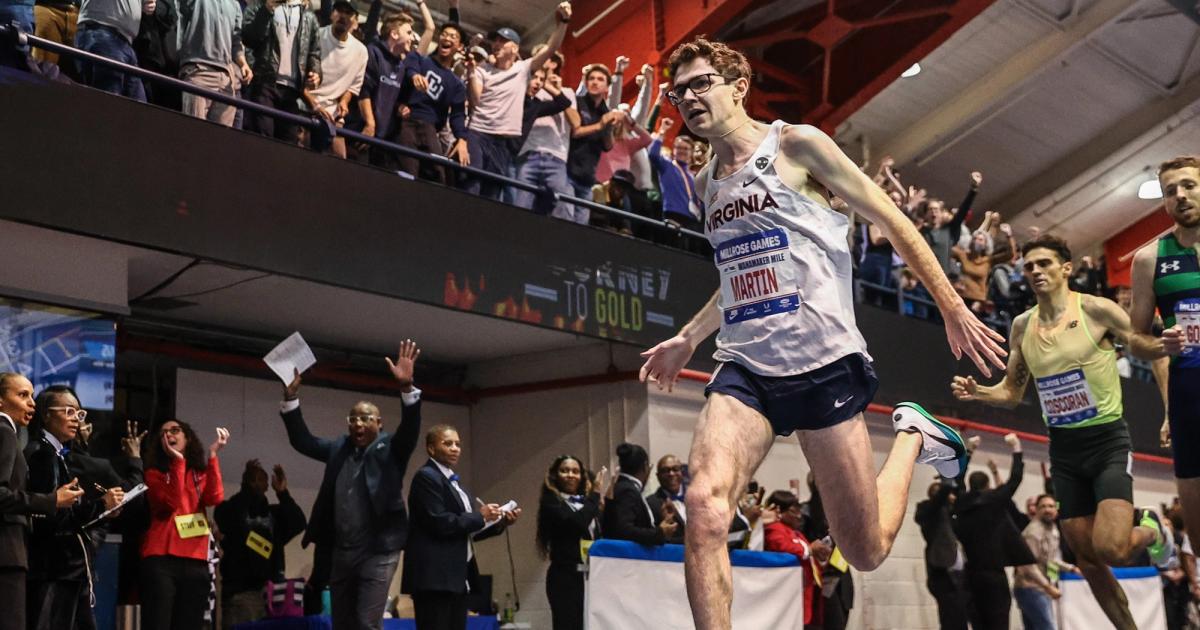By Paul Snyder
June 11, 2025
Ah, the middle distances. They aren’t so short that one gaffe ruins an athlete’s shot at victory. They aren’t so long that disparity in talent leads to a strung out field with the winner being the one who tightens the screws best. All it takes is a slow prelim or an unexpected fall to change the dynamics of these races entirely.
As we’ve bleated ceaselessly in this newsletter, variability and weirdness make for memorable racing, in part because it leaves room for speculation and wild prognostication. And there are no better places to dive in the deep end of the upset pool than NCAA middle-distance races.
With all that said, we’ve reviewed the start lists, rooted around TFRRS, and thought carefully about moments from big races this year where certain athletes pass the eye test. And our educated conclusion is that there are very few true locks across these four events. Conversely, this weekend feels highly likely to deliver one or more true upset victories and newly-crowned champions.
Women’s 800m: Seven women have run sub-two this season: UNC’s Makayla Paige, BYU’s Meghan Hunter, and LSU’s Michaela Rose are probably the favorites. But to even make the final, they’ll need to finish in the top two, or run one of the next three fastest times. Let’s assume Rose’s heat will produce all the time qualifiers, thanks to her frontrunning and inadvertent rabbiting. Let’s also assume that about half the field is going to need to leave their final on the track in order to even advance, thanks to the quality of the field.
While we love a Wottle moment, the reality is, a come-from-way-behind win in the 800m is rare because of the energy expenditure required to navigate around eight bodies in varying stages of rigging up on the homestretch. So we are looking for an athlete who has exhibited comfort in passing through the rounds, who has the leg speed to go out with Rose, and the tactical savvy to simply hang on while the field rigs up around her.
She’s never won an NCAA title, but Victoria Bossong checks those boxes. She has doubled or tripled at every outdoor meet she’s run this year, boasts a 1:59.48 PB, and was the Ivy League champion over 400m with a 52.02 best at that distance. Plus, she’s in Rose’s prelim, meaning she may have more wiggle room in terms of placement in order to reach the final.
Women’s 1500m: Six of the ten fastest women in NCAA history over 1500m are in this field: Oregon’s Klaudia Kazimierska and Silan Ayyildiz, Virginia’s Margot Appleton, Washington’s Chloe Foerster, South Carolina’s Salma Elbadra, and Providence’s Shannon Flockhart. Then Washington’s Sonia O’Sullivan was an Olympian for Ireland. That doesn’t begin to scratch the surface of how good this field is—those are just some of its tidier accolades.
However, when the dust settles, it just may be an athlete further down the performance list who emerges victorious: Riley Chamberlain of BYU. Chamberlain’s “only” run 4:08.42 for 1500… but the thing that stands out about Chamberlain is that she’s twice anchored the BYU DMR squad to an indoor title. In both instances, she registered the fastest split of any 1600m leg, and had to make up a gap on the leader to take the win. Sure, some athletes are better on relays than in individual events, just temperamentally. But Chamberlain is a proven winner, and is overdue for a solo crown.
Men’s 800m: Koitatoi Kidali will step onto his home track in Eugene with a modest season’s best of 1:47.12. He very well may walk off of it to rapturous cheers from the Duck faithful as an NCAA champion. In a vacuum, it seems borderline insane to project him as the winner. But this is a track and field newsletter, not a vacuum, so here’s some context. We’ll cop to the fact that this shouldn’t count as predicting an upset, because Kidali is the 24th fastest man ever over 800m, thanks to his 1:42.66 performance at the 2024 Kenyan Olympic Trials.
Up to now, things haven’t quite clicked for Kidali at Oregon, but the guy is simply too talented to continue on a middling trajectory. Through some combination of training adaptations, Hayward Magic, and deserved confidence, Kidali will get it right, right when it counts most.
Men’s 1500m: This field features UNC’s Ethan Strand and Virginia’s Gary Martin, both 3:48 milers. Then there’s Washington’s Nathan Green, an absolute dawg in championship settings, and Wisconsin's Australian Olympian and 3:31 man Adam Spencer. If you’re a betting fan, you’re probably taking out a second mortgage to put it all on one of these student-athletes. But what about NAU’s Colin Salhman?
Sahlman has some of the best range of this bunch: last year he ran 1:45, 3:33, and 13:38 in a one month span. With that sort of mid-D pedigree plus open 48-point 400m speed, he’s theoretically got the wheels to close with anybody. He just hasn’t quite nailed the tactics of a championship-style 1500m race yet. But if any coach can elevate an already lofty talent like Salhman and give him the tools he needs to run away from the field over the final 50 meters, it’s Mike Smith. This is the year it all falls into place, and Salhman could give his mentor the ultimate farewell present: NAU’s first men’s 1500m title since Lopez Lomong’s in 2007.

Paul Snyder
Paul Snyder is the 2009 UIL District 26-5A boys 1600m runner-up. You can follow him on Bluesky @snuder.bsky.social.
